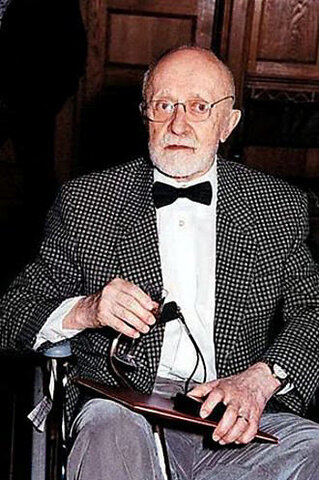
Introduction to Ivan Boszormenyi-Nagy
Ivan Boszormenyi-Nagy was a notable figure in the field of psychology, particularly recognized for his pioneering contributions to contextual family therapy. Born in Hungary in 1924, he faced the challenges of World War II, which significantly impacted his early life and shaped his perspectives on human relationships and family dynamics. His journey from Hungary to the United States was marked by resilience and determination, as he sought refuge from the war-torn environment of his homeland. This immigration was a pivotal moment that allowed him to pursue an academic and professional life in psychology.
After relocating to the United States, Boszormenyi-Nagy obtained his medical degree from the University of California, Los Angeles, where he developed a profound interest in psychiatry and family systems. His education was influenced by prominent figures in psychology, including his experiences in various clinical settings, which served to deepen his understanding of relational dynamics within families. This foundational knowledge would later inform his creation of contextual family therapy, which emphasizes the significance of relationships and ethical dimensions in family interactions.
Furthermore, Boszormenyi-Nagy’s work was heavily influenced by his own life experiences, which fostered a deep empathy for his clients and a keen insight into the intricate web of family relationships. He recognized that each family member’s experiences and viewpoints significantly affect the family’s overall dynamics. This understanding led him to develop therapeutic approaches that prioritized context and the relational aspects of family life. His commitment to exploring these themes has left a lasting impact on the field of psychology, inspiring future mental health practitioners to consider the context of a person’s life and relationships in their therapeutic practices.
The Principles of Contextual Family Therapy
Contextual Family Therapy (CFT), as developed by Ivan Boszormenyi-Nagy, emphasizes the significance of interpersonal relationships and contextual factors in understanding and resolving family issues. This therapeutic approach is built on several core principles, primarily loyalty, justice, and relational ethics, which underscore the dynamics of family relations and contribute to emotional well-being.
Loyalty is considered a central concept in CFT, as it reflects the inherent bonds between family members that are often influenced by shared history and experiences. This loyalty can manifest in various ways, sometimes leading to unspoken obligations or unhealthy patterns of behavior. Boszormenyi-Nagy posited that acknowledging and addressing these loyalty dynamics is crucial for healing, as it can unveil hidden loyalties that may contribute to family conflicts. An exploration of family history can reveal how loyalty to previous generations may impact current relationships and individual mental health.
Justice, another pivotal principle, pertains to the fairness and balance in family exchanges. Boszormenyi-Nagy highlighted that unresolved injustices can create emotional disturbances that affect family functioning. Families often possess unspoken agreements regarding give-and-take dynamics; disruptions in this balance may result in emotional distress or relational fractures. Through CFT, practitioners strive to restore justice by facilitating open, honest discussions that allow family members to express their needs and expectations genuinely.
Relational ethics, a key aspect of CFT, examines the moral responsibilities individuals hold towards one another within familial settings. This ethical framework encourages families to recognize the impact of their actions on one another, facilitating accountability and fostering healthier interactions. By prioritizing context and the relational aspects of therapy, CFT challenges traditional therapeutic models, which may overlook the intricacies of family dynamics, advocating for a more comprehensive understanding of mental health issues through the lens of relationships.
Intergenerational Transmission of Relational Ethics
The concept of intergenerational transmission of relational ethics is pivotal in understanding the dynamics of family systems, particularly as articulated by Ivan Boszormenyi-Nagy. This phenomenon refers to the process whereby values, beliefs, and behavioral patterns are passed from one generation to the next, shaping individual identities and influencing collective family interactions. The ethics associated with relationships, such as trust, loyalty, and reciprocity, significantly contribute to how family members perceive and engage with one another.
Research highlights that families often replicate established relational norms, which can manifest in both positive and negative ways. For example, a family that models open communication and mutual respect can instill these values in younger members, fostering healthy and supportive relationships. Conversely, a family that perpetuates secrecy or conflict can inadvertently teach the next generation maladaptive behaviors, such as avoidance or hostility. This transmission of relational ethics is not merely coincidental but is deeply rooted in the emotional histories and experiences shared among family members.
Illustrating this concept, consider a family where a grandparent emphasized the importance of honesty, citing it as the foundation of their own upbringing. As a result, their children and grandchildren are likely to prioritize transparency in their relationships. This not only enriches their interpersonal connections but also establishes a standard for how they navigate conflicts and express emotions. On the other hand, families that encounter unresolved tensions may pass down distrust or resentment, leading to cycles of dysfunction that can permeate successive generations.
Understanding the intergenerational transmission of relational ethics is crucial for family therapists, as it enables them to recognize patterns that affect present interactions. By addressing these inherited values and beliefs, therapists can guide families toward healthier relational paradigms, fostering more constructive interactions among members and ultimately enhancing familial well-being.
The Impact and Legacy of Boszormenyi-Nagy’s Work
Ivan Boszormenyi-Nagy’s contributions to the field of psychology and family therapy have profoundly influenced contemporary therapeutic practices and models. His innovative approach, particularly in the realm of Contextual Family Therapy, challenged traditional paradigms by emphasizing the significance of relational ethics, loyalty, and social justice in therapeutic settings. This focus on relational ethics has permeated various therapeutic approaches, urging practitioners to consider not only the individual challenges presented by clients but also the broader familial and social contexts in which these issues occur.
One of Boszormenyi-Nagy’s critical ideas was the concept of “loyalty,” which he argued plays an essential role in family dynamics. Loyalty, as he defined it, transcends simple allegiance; it encompasses a complex web of obligations and expectations that family members have toward one another. This perspective has encouraged contemporary therapists to acknowledge these subtleties when working with families, facilitating more profound insights into intergenerational patterns and relational conflicts. Moreover, it has inspired therapists to assist families in understanding and negotiating loyalty issues, ultimately promoting healthier dynamics and improved communication.
Furthermore, Boszormenyi-Nagy’s dedication to social justice resonated deeply within his work, positioning him as an advocate for the marginalized and those affected by systemic inequalities. This commitment has influenced many modern therapeutic practices to foster an awareness of cultural, socio-economic, and ethical considerations when addressing family issues. Today, clinicians are more inclined to incorporate discussions surrounding privilege, oppression, and power dynamics into therapeutic frameworks, thereby expanding the scope of family therapy.
Through his pioneering contributions, Ivan Boszormenyi-Nagy has solidified his status as a key figure in the evolution of therapeutic approaches, shaping how we understand family relationships and their complexities. His lasting legacy continues to inspire generations of therapists striving for a more inclusive and ethically aware practice.


